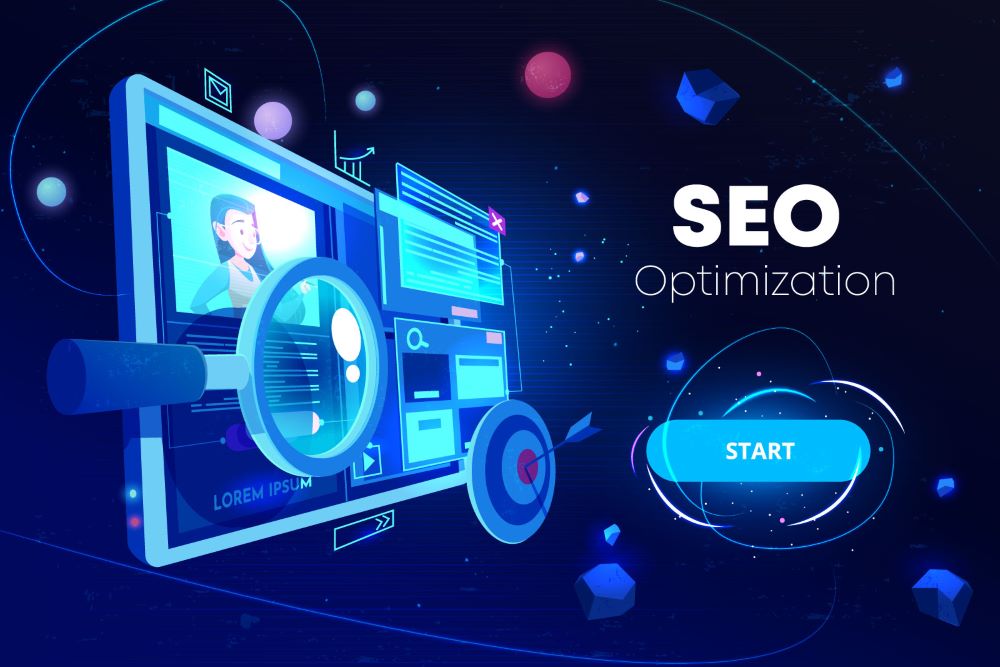In the ever-evolving world of digital marketing, one question persists: Is SEO a one-time thing? The short answer is no. While search engine optimization (SEO) involves some initial setup, it’s fundamentally an ongoing process that requires consistent effort to achieve and maintain success.
This article dives into why ongoing SEO efforts are essential, how they differ from one-time SEO tasks, and why your business needs a well-rounded, continuous SEO strategy. Let’s explore!
What is SEO?
SEO, or search engine optimization, is the process of improving a website’s visibility on search engines like Google, Bing, and Yahoo. By optimizing various elements of your website, such as content, structure, and technical aspects, SEO helps drive organic traffic and improve search engine rankings.
The ultimate goal? To appear on the first page of search engine results pages (SERPs) for relevant queries. After all, higher visibility leads to increased clicks, more traffic, and better conversions.
How Does SEO Work?
SEO involves optimizing your website in alignment with search engine guidelines and user intent. Here’s a brief overview of its core components:
- Keyword Research: Identifying relevant keywords that your target audience is searching for.
- On-Page Optimization: Improving elements like meta tags, content structure, and site speed to align with best practices.
- Off-Page Optimization: Building high-quality backlinks from reputable websites to enhance authority.
- Technical SEO: Addressing technical issues such as broken links, crawl errors, and site speed to improve website performance.
- Content Creation: Crafting high-quality content that resonates with users and satisfies search intent.
Together, these elements form a comprehensive SEO strategy designed to improve search visibility and generate sustainable traffic.
Is SEO a One-Time Thing or an Ongoing Process?
Many business owners initially approach SEO as a one-time activity, thinking that a single optimization is enough to achieve long-term results. Unfortunately, that’s a myth.
Search engines like Google continuously update their search engine algorithms to deliver better results to users. These algorithm changes, along with evolving user behaviors, mean that what worked yesterday may not work tomorrow.
Here’s why SEO is an ongoing journey:
- Algorithm Updates: Google and other search engines frequently refine their algorithms. Staying compliant requires ongoing optimization.
- Competitor Activity: Your competitors are also investing in SEO. Regular efforts help you stay ahead in search rankings.
- Content Decay: Older content can lose relevance over time. Regular updates ensure your content remains fresh and valuable.
- User Behavior Shifts: Trends and user preferences change. Adapting to these shifts is crucial for maintaining website rankings.
What is the Difference Between One-Time SEO and Ongoing SEO?
Let’s break down the differences:
One-Time SEO:
- Initial Optimization: Focuses on setting up the basics, such as keyword integration, technical fixes, and foundational improvements.
- Short-Term Impact: Can provide a temporary boost in search engine results.
- Limited Scope: Does not account for changes in algorithms, competition, or user behavior.
Ongoing SEO:
- Continuous Process: Includes regular updates, content creation, and link building.
- Adaptability: Responds to evolving search engine algorithms and user trends.
- Long-Term Success: Ensures sustained improvement in search engine rankings and website performance metrics.
Why Websites Require Ongoing SEO Optimization
SEO is not a “set it and forget it” strategy. Here are some reasons why your website requires ongoing SEO efforts:
1. Keeping Up with Algorithm Updates
Google rolls out hundreds of updates to its algorithm every year. Major changes like the Core Web Vitals update or E-A-T guidelines directly impact how sites are ranked. Regular monitoring using tools like Google Search Console and Google Analytics is essential to adapt to these updates.
2. Staying Ahead of Competitors
Your competitors are also vying for top spots in search engine results pages. By consistently investing in ongoing SEO, you can outpace them and maintain your edge.
3. Improving User Experience
SEO isn’t just about rankings; it’s about creating a seamless user experience. Regular website audits help identify and fix issues like site speed problems, broken links, and outdated content.
4. Adapting to User Behavior
User search habits and preferences evolve. Regular updates to your strategy, based on user engagement and behavior analytics, ensure you stay relevant.
5. Expanding Keyword Targeting
The keywords your audience uses today may not be the same tomorrow. Conducting regular keyword research helps capture new opportunities and drive organic traffic.
Key Components of Continuous SEO Optimization
An effective SEO strategy involves several interconnected elements. These include:
1. Content Creation
Content is the backbone of any successful SEO strategy. Producing high-quality content that aligns with search intent helps capture your target audience’s attention while improving your website’s relevance to search engines. This involves:
- Crafting blog posts, articles, and landing pages that answer user queries.
- Ensuring content is engaging, informative, and includes relevant keywords without overstuffing.
- Keeping content updated to stay relevant and avoid content decay.
2. Link Building
Building high-quality backlinks from reputable websites is crucial for boosting your site’s authority. Search engines view these links as endorsements, signaling that your site offers valuable content. Effective link-building involves:
- Establishing relationships with credible websites in your industry.
- Creating shareable resources, such as infographics or in-depth guides.
- Monitoring and replacing any broken or outdated backlinks to maintain link equity.
3. Technical SEO
Technical SEO focuses on ensuring your site is accessible and crawlable by search engine bots. Addressing technical issues not only helps with search engine rankings but also improves the user experience. Key areas of technical SEO include:
- Enhancing site speed for faster load times.
- Fixing broken links or redirect errors that hinder navigation.
- Optimizing mobile responsiveness to cater to an increasing number of mobile users.
- Ensuring proper indexing by submitting updated sitemaps through tools like Google Search Console.
4. Local SEO
For businesses targeting regional audiences, local SEO is vital. It helps increase visibility in local searches, such as “restaurants near me” or “best plumbers in [city].” Effective local SEO tactics include:
- Optimizing your Google Business Profile with accurate and updated information.
- Earning local backlinks from community organizations or directories.
- Encouraging and managing customer reviews to boost credibility.
5. Analytics and Tracking
Tracking your website’s performance is essential to measure the effectiveness of your SEO efforts and make data-driven adjustments. Tools like Google Analytics and rank tracking software can help monitor:
- Organic traffic growth over time.
- Bounce rates and user engagement metrics.
- Keyword performance and search engine rankings.
6. Regular Website Audits
Conducting regular website audits ensures your site remains optimized and free of technical or content-related issues. Audits involve:
- Evaluating your site’s overall health, including technical, on-page, and off-page SEO factors.
- Identifying broken links, duplicate content, or outdated pages.
- Checking alignment with the latest search engine algorithms and best practices.
7. On-Page Optimization
Fine-tuning individual pages is crucial for improving visibility and relevance. On-page optimization includes:
- Writing compelling meta tags, including titles and descriptions that encourage clicks.
- Structuring content with proper headers (H1, H2, H3) for better readability and keyword placement.
- Optimizing images by compressing files and using descriptive alt text.
By combining these elements into a cohesive and ongoing strategy, businesses can enhance their search visibility, attract organic traffic, and secure long-term SEO success in the competitive digital landscape.
The Risks of Neglecting Continuous SEO
If you’re wondering whether you can treat SEO as a one-time task, consider the risks of doing so:
- Declining Search Rankings: Without ongoing SEO efforts, your site risks being overshadowed by competitors who consistently optimize their content and adapt to search engine algorithms.
- Decreased Organic Traffic: As your website rankings drop, so does your organic traffic. This can have a direct impact on lead generation, sales, and overall business growth.
- Missed Opportunities: Regular updates to search engine results pages and user preferences mean businesses must stay proactive to capture new opportunities. Neglecting SEO may cause you to miss out on valuable market trends.
- Technical Issues Left Unresolved: Over time, unresolved technical issues such as broken links or slow-loading pages can harm your site’s reputation and drive users away.
How Often Should You Perform SEO?
SEO is a continuous process, but the frequency of specific tasks depends on your goals, industry, and competition. Here’s a general guideline:
- Keyword Research: Monthly or quarterly to identify new opportunities.
- Content Updates: Regularly update or add new content every month.
- Technical SEO Audits: Perform a comprehensive website audit every quarter.
- Backlink Building: Ongoing effort to acquire quality links.
- Rank Tracking: Weekly or monthly using tools like rank tracking software.
- Competitor Analysis: Quarterly to understand the evolving landscape.
Staying consistent with these activities ensures your website remains optimized and competitive.
How SEO Strategies Pro Can Help You
At SEO Strategies Pro, we understand that SEO is more than just a one-time activity—it’s an ongoing journey that requires expertise, dedication, and the right tools. Here’s how we can help:
- Customized SEO Plans: We tailor strategies to your business needs and industry.
- Advanced Tools: From Google Analytics to rank tracking software, we leverage cutting-edge tools to monitor and enhance performance.
- Comprehensive Audits: Our experts perform regular website audits to identify opportunities for improvement.
- Content Strategy: We create and optimize high-quality content that resonates with your audience.
- Technical Expertise: From fixing technical issues to improving site speed, we handle it all.
- Transparent Reporting: We keep you informed about your progress with clear, actionable insights.
Ready to take your SEO to the next level? Contact SEO Strategies Pro today to discuss how our ongoing SEO services can help you achieve long-term success in the competitive digital landscape.
Conclusion
To answer the question, “Is SEO a one-time thing?”—the answer is a resounding no. SEO is a continuous process that requires consistent effort to adapt to evolving search engine algorithms, changing user behavior, and competitive pressures.
At SEO Strategies Pro, we specialize in crafting SEO strategies that deliver results. From regular website audits to keyword research and content creation, we help businesses achieve and maintain top search rankings.
Contact us today to learn more about how we can support your ongoing SEO efforts and maximize your search engine results.
FAQs
1. How often should you do SEO?
SEO should be done continuously to adapt to changing algorithms, trends, and competition. Regular updates ensure your website remains optimized for search engines and user needs.
2. Is SEO a monthly thing?
Yes, SEO is commonly handled on a monthly basis. This allows for consistent monitoring, content updates, link-building efforts, and performance tracking.
3. Is SEO a continuous process?
Absolutely. SEO is an ongoing process that evolves with search engine updates, user behavior, and market trends. Continuous optimization ensures long-term success.
4. Is SEO a recurring service?
Yes, SEO is typically a recurring service provided by professionals to maintain and improve your website’s rankings and visibility over time.




